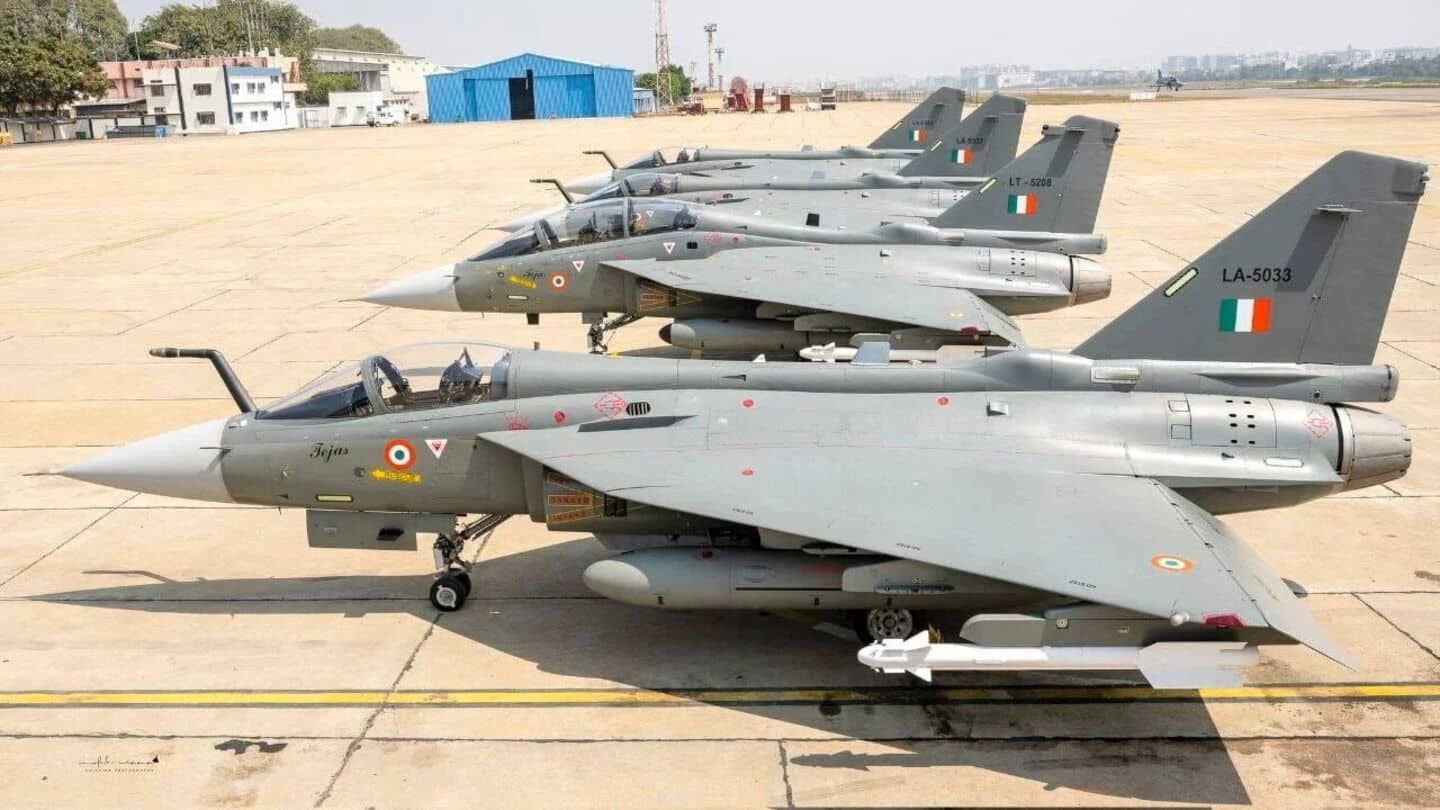
Tejas Mk1A, manufactured in HAL Nashik plant, completes maiden flight
What's the story
The Tejas Mk1A Light Combat Aircraft (LCA), manufactured at the third production line of Hindustan Aeronautics Limited (HAL), has successfully completed its maiden flight. The event in Nashik was attended by Defense Minister Rajnath Singh. The first two LCA production lines, as well as the first HTT-40 production line, are located in Bengaluru. The warplanes are replacing the MiG-21 fighter jets, which were retired by the Indian Air Force (IAF) last month.
Aircraft details
About the Tejas Mk1A
The Tejas Mk1A is an advanced version of the original LCA, boasting improved avionics, a new radar system, enhanced weapon capabilities, and an advanced electronic warfare suite. Its top speed is over 2,200km/h. The Nashik plant has been set up with a capacity to produce eight aircraft per year. With this addition, HAL's total production capacity for the LCA Mk1A will reach 24 aircraft annually. The IAF is expected to receive its first LCA Tejas Mk1A aircraft this month.
Twitter Post
Watch the video here
#WATCH | Maharashtra | HAL manufactured LCA Tejas Mk 1A, HTT-40 basic trainer aircraft and Su-30 MKI flying at the inauguration of the third line of LCA Mark 1A and second line of HTT-40 at HAL facility in Nashik. https://t.co/OhSUaXT5Fo pic.twitter.com/w5fWhGoR0P
— ANI (@ANI) October 17, 2025
Trainer aircraft
HTT-40 trainer aircraft
Along with the LCA Mk1A, Singh also inaugurated the second production line of Hindustan Turbo Trainer-40 (HTT-40). The HTT-40 is an indigenous Basic Trainer Aircraft developed by HAL for IAF. The establishment of the LCA Mk1A production line has created around 1,000 jobs and over 40 industry partners in Maharashtra, Gujarat, and Madhya Pradesh.
Production delays
Production to ramp up in Nashik
The induction of the Mk1A was delayed due to supply chain disruptions of GE F404 engines from the United States. However, HAL officials have confirmed that production is picking up pace, with four GE-404 jet engines received recently. The company plans to increase capacity in Nashik to 10 aircraft annually within two years by establishing additional facilities.